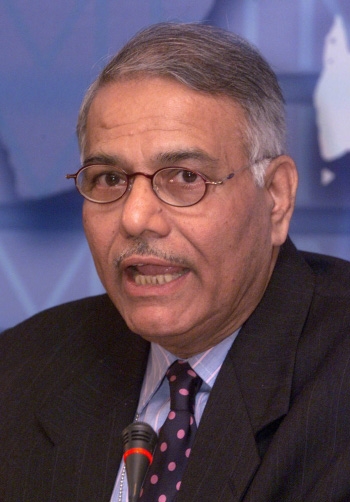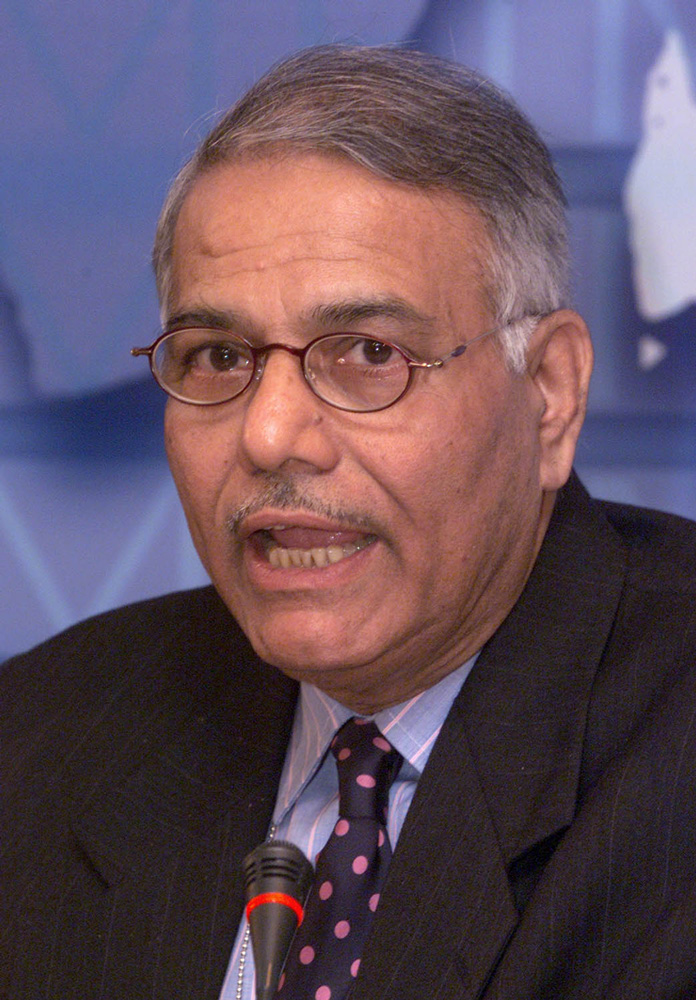
.png) Manoj Varghese
Manoj Varghese

Newspapers and TV channels struggled hard on the day of Budget presentation to accord a befitting heading, keeping the expectations and sponsorships in mind. The Government publicized it as a budget of “Amrit Kaal’, the economists quoted it as “nothing unique”, and the Opposition called it as a “wish list with no vision”. Amidst all these terms, former Union Finance Minister Yashwant Sinha opined it to be an “inadequate” budget in meeting the needs of the public in the present scenario. In a telephonic chat with Manoj Varghese of Indian Currents, he expresses his concern and the way out.
Q: How will you define the Budget 2022-23?
A: The Budget 2022-23 has failed to face the multiple challenges in the background of corona pandemic, low returns in agriculture sector, massive unemployment, bringing down inflation, distress in the MSME sector and rising inequality. Learning from the past breakdown of health system during the corona time, a vigilant government should have given the topmost priority to equip the medical manpower and infrastructure. Although, the cases are declining, a dangerous proportion is still there.
A raw deal has been meted out to the farmers, who have been on a war-path demanding MSP and good returns for their hard labour. As promised, instead of imparting 2 crore jobs per year, the reports say that almost 3 crore people have lost their job in the past one year alone. Inflation is reported both at the domestic and global front. Small-scale industries were expecting a helping hand to revive their manufacturing units after the steep fall due to GST and lockdowns.
The gap between the rich and the poor has widened. These are the issues which should have been dealt with in the Budget. Over 27 crore people have been pushed to the below poverty line. And we still dream of a 5 trillion economy.
Q: What happened to the BJP’s claims to double the farmers’ income by 2022? In the year of reckoning, there is no mention about it in the budget. What would have been your take as a Union Finance Minister?
A: Even during the corona pandemic, the agriculture sector has sustained well in our economy and has surpassed its yield. Despite the good harvest, the farmers’ income has gone down and their living expenses have gone up.
The two schemes I had introduced as the Union Finance Minister in 2007, Kisan Credit Card and PM Gram Sadak Yojana, have come to the rescue of rural farmers. Kisan Credit Card has made the availability of funds easier for the farmers. The scheme gave a respite to the farmers who otherwise would have been indebted with the high-interest rate loans. Sadak Yojana has opened up remote areas for the farmers to bring in their produce to the local market and procure better price. It has connected the rural area in transporting their products timely to a relevant market.
We need to think new ways for land holding, water, good seeds, technology and formulate a comprehensive agriculture policy.
Q: In 2014, Arun Jaitley had promised to raise IT exemption limit to Rs 5 lakh. This is yet another promise which has not been fulfilled yet. Moreover, the middle class had a high expectation of IT relief in this budget. Is it not a case of injustice to middle class?
A: Yes, it is indeed an injustice to a large section of income tax payers from middle class. For over a decade, the IT slab has not been revised. Exemption of IT limit is almost the same as that I had fixed. During my term as a Standing Committee chairman of Finance, I had recommended to raise the bar to 5 lakh and link it to the cost-of-living index of the Government employees and DNS allowances. Accordingly, the IT slab would have raised automatically every year. This would have helped a large number of people to spend and bring back the capital in rotation.
Q: The National Policy on Education 1968 recommended the spending on education to be 6 % of GDP. But still the spending on this vital sector remains at an abysmal level. Is it not a case of lopsided priority?
A: It is a matter of great concern. Taken the inflation into account, the allocation is low as compared to what was there last year. Education and Health sectors are two important investments, that all the previous governments have been earmarking in the budget with a top priority. But this budget witnessed only a marginal increase in the budget for the education. A lot of investment is required to bring back the confidence in our health industry.
Q: What is your say on the decline in savings and investments?
A: Our domestic saving rates have gone down from 38 % at one time a few years ago to 31 %, which is a decline of over 6-7 %. This means a decline of 15-20 lakh crore, and this money could have been available if the people had saved. If they are not saving, then are they spending this money in consumption? But we see, the consumption has also gone down. So, neither saving nor spending on consumption, and it sounds like a riddle. There is no money to either save or invest.
Q: How would you see it as a budget of ‘Amrit Kaal’?
A: It is yet another ‘Jumla’ of FM (Finance Minister). The Government is not able to deal with the present, and talk of a glorious day after 25 years. Seven years ago, the present government came into power giving the hope of ‘Achche din’, 2 crore jobs annually, provide the petrol @ Rs 30 and the gas cylinders @Rs 300. All these wish lists still remain to be an ‘unaccomplished vision’. The govt has come up with various slogans at different intervals. And when the time comes for their realization, they just keep quiet and push it out of consideration. Just as they pushed out the effect of demonetization or fraud GST introduction out of consideration. Are we living in a fools’ paradise with the ‘Alice in Wonderland’ showcasing all hopes in a basket?